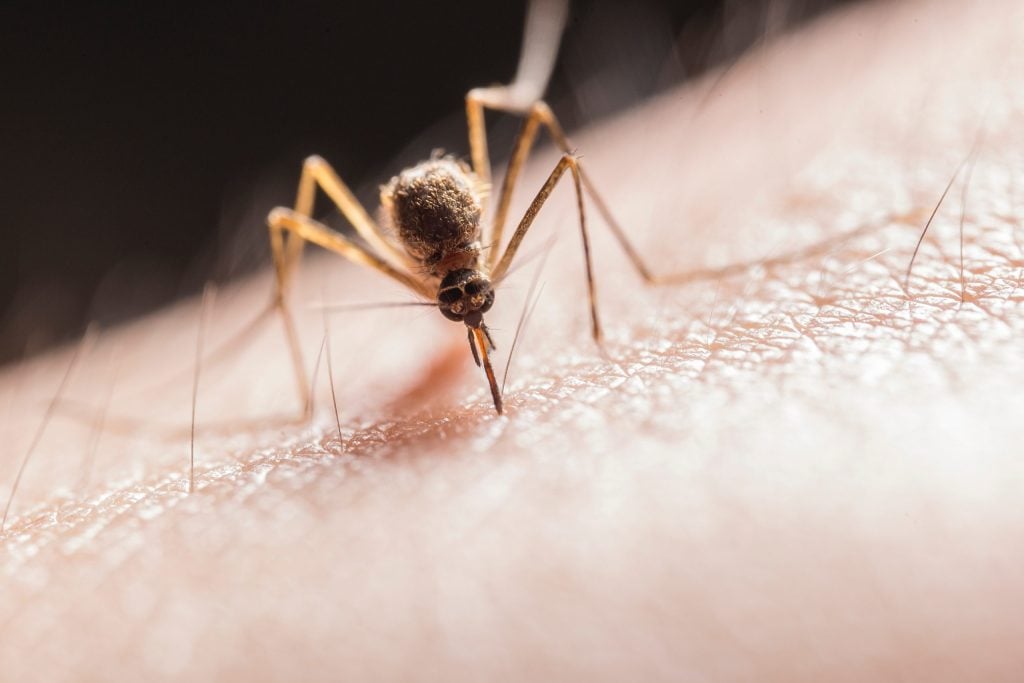Summer brings backyard hangouts, days by the pool, and unfortunately bugs that bite such as mosquitoes, ticks, spiders, and more. Most of the time, these bites are harmless. But on some occasions, they can cause irritation, allergic reactions, or even infections.
While you’re probably not well-versed in bug bite identification, it’s important to know what bit you! In this guide, we’re going to highlight a few common insect bites and when you should see a doctor.
Mosquito Bites
If you’ve ever been bitten by a mosquito––the bloodthirsty flying insect known for itchy bites and, in rare cases, the West Nile virus––you understand what a nuisance they can be! Mosquito bites are itchy, red bumps that result after a mosquito punctures your skin. In some children, and in those who have an allergy to bites, swelling may occur at the wound site.
How Can I Prevent Mosquito Bites?
If you want to prevent mosquito bites, it’s important to limit exposure outside between dusk and dawn. In addition, you’ll want to cover exposed skin and use insect repellent to deter mosquitoes.
To prevent mosquito infestation in your yard, make sure to eliminate any sources of stagnant standing water.
When to See a Doctor
Most reactions to mosquito bites are virtually harmless and do not generally require medical evaluation. However, constant itchy and scratching the bite site can cause a secondary skin infection to develop.
Symptoms of a mosquito bite infection include warmth, spreading redness or puffy skin, the development of an abscess, and in severe cases, a fever. Make sure to seek medical care if any of these symptoms present.
Tick Bites
If you’ve recently walked through overgrown areas with long grasses or thick undergrowth, you need to carefully inspect your body for ticks. Ticks like to latch onto exposed skin and embed underneath the skin. Sometimes ticks may carry the bacteria known to transmit Lyme Disease to their human host. This is why it’s crucial that you find and remove them when you first see them.
In the event of Lyme Disease, you’re safe for at least a day before an infected tick can transmit the bacteria into your bloodstream. If you’re worried about whether you may have contracted Lyme Disease, be on the lookout for a rash that looks like a bullseye. This rash is a known indicator of Lyme Disease.
How Can I Prevent Tick Bites?
As per medical guidelines, the best way to prevent tick bites is to wear bug spray that contains DEET, permethrin, or picaridin. In addition to using bug spray, it’s also advised to wear light-colored protective clothing and to tuck your pants into your socks.
Though these methods are great preventatives, they aren’t foolproof. To ensure you do not contract a tick, always avoid heavily wooded areas.
When to See a Doctor
Most tick bites are harmless and don’t require medical intervention. However, if you think you may have been bitten by a tick with Lyme Disease, it’s important that you visit your nearest emergency department.
Early symptoms of Lyme Disease onset may include sensitivity to light, a rash,or flu-like illness.
Insect Stings
Insect stings from bees, wasps, yellow jackets, and hornets are usually no cause for concern. In most minor cases, these stings only cause slight discomfort with some redness, swelling, and itching.
In severe cases, stings from winged insects can cause an allergic reaction––which can be life-threatening.
How to Treat Insect Stings
Before you treat the insect sting, make sure the stinger is removed from the injection site. You can remove the stinger by gently scraping the site with a blunt-edged object. Clean the area with mild soap and water and apply an ice pack to stop the swelling.
When to See a Doctor
In the event of a bee sting to the mouth, nose, or throat––seek emergency medical care immediately. Symptoms of an allergic reaction to insect stings require immediate medical attention. Symptoms may include the following:
- Abdominal cramping, vomiting, or diarrhea
- Tightness in the chest and difficulty breathing
- Hives, itching, or swelling in areas other than the sting site
- Swelling of the tongue or throat, or difficulty swallowing
Since insect stings can be life-threatening, you must seek emergency medical intervention in the case of an allergic reaction.
The Key to Your Best Skin is Prevention!
Just like it’s important to prevent bug bites to avoid unnecessary scarring or inflamed skin, it’s important to take the proper steps to prevent skin damage. Prevention is the key to having your best skin yet! And we’ll help you get there.
Contact us for more information!


